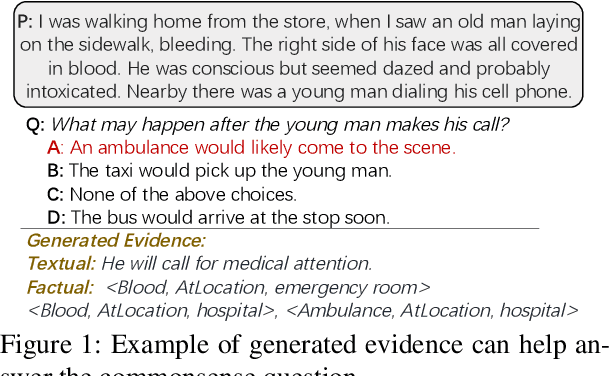Commonsense Evidence Generation and Injection in Reading Comprehension
Paper and Code
May 11, 2020



Human tackle reading comprehension not only based on the given context itself but often rely on the commonsense beyond. To empower the machine with commonsense reasoning, in this paper, we propose a Commonsense Evidence Generation and Injection framework in reading comprehension, named CEGI. The framework injects two kinds of auxiliary commonsense evidence into comprehensive reading to equip the machine with the ability of rational thinking. Specifically, we build two evidence generators: the first generator aims to generate textual evidence via a language model; the other generator aims to extract factual evidence (automatically aligned text-triples) from a commonsense knowledge graph after graph completion. Those evidences incorporate contextual commonsense and serve as the additional inputs to the model. Thereafter, we propose a deep contextual encoder to extract semantic relationships among the paragraph, question, option, and evidence. Finally, we employ a capsule network to extract different linguistic units (word and phrase) from the relations, and dynamically predict the optimal option based on the extracted units. Experiments on the CosmosQA dataset demonstrate that the proposed CEGI model outperforms the current state-of-the-art approaches and achieves the accuracy (83.6%) on the leaderboard.
 Add to Chrome
Add to Chrome Add to Firefox
Add to Firefox Add to Edge
Add to Edge